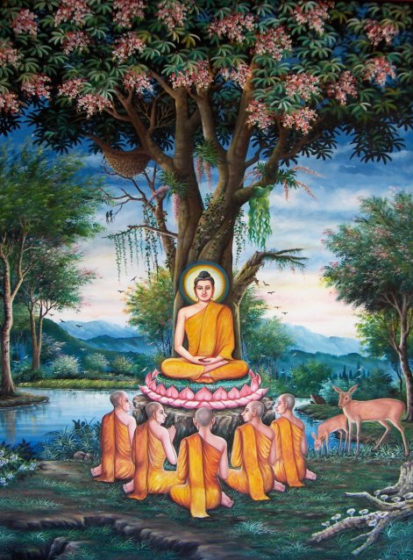Maha Kassapa: Father of the Sangha
1. Kassapa’s Early Years
Among those of the Buddha’s disciples who were closest to him, there were two friends, Sariputta and Maha Moggallana, who were the chief disciples of the Buddha, the exemplary pair of disciples. There were also two brothers, Ananda and Anuruddha, who were likewise eminent “Fathers of the Order.” In between these two pairs stands a great solitary figure, Pipphali Kassapa, who later was called Maha Kassapa, Kassapa the Great, to distinguish him from the others of the Kassapa clan, such as Kumara Kassapa and Uruvela Kassapa.
After Sariputta and Maha Moggallana had passed away, predeceasing the Buddha, it was Maha Kassapa who was held in greatest respect and reverence in the Order. But even after the Buddha’s passing away, Maha Kassapa did not become the elected head of the Order of Monks, as it had been the Buddha’s express wish that there should not be a supreme authoritative head of the Sangha. Shortly before his passing away, the Buddha had said: “That which I have proclaimed and made known, Ananda, as the Teaching and the Discipline (Dhamma-Vinaya), that shall be your Master when I am gone” (D.16).
Yet the natural authority emanating from Maha Kassapa made him particularly honored and venerated in the Sangha. There were many factors that contributed to his pre-eminent position after the death of the Master. He had been praised by the Buddha as being equal to him in many respects[1] and he shared with the Master seven of the thirty-two “Marks of a Great Man.” He had been the only monk with whom the Buddha had exchanged robes. Maha Kassapa possessed to the highest degree the ten “qualities that inspire confidence.”[2] He was also a model of a disciplined and austere life devoted to meditation. So it is no wonder that he was elected to preside over the First Council of the Sangha which had been summoned on his urgent advice. It may have been on account of all these features of his personality and his life that, much later in China and Japan, Maha Kassapa came to be regarded as the first patriarch of Ch’an or Zen Buddhism. Continue reading








